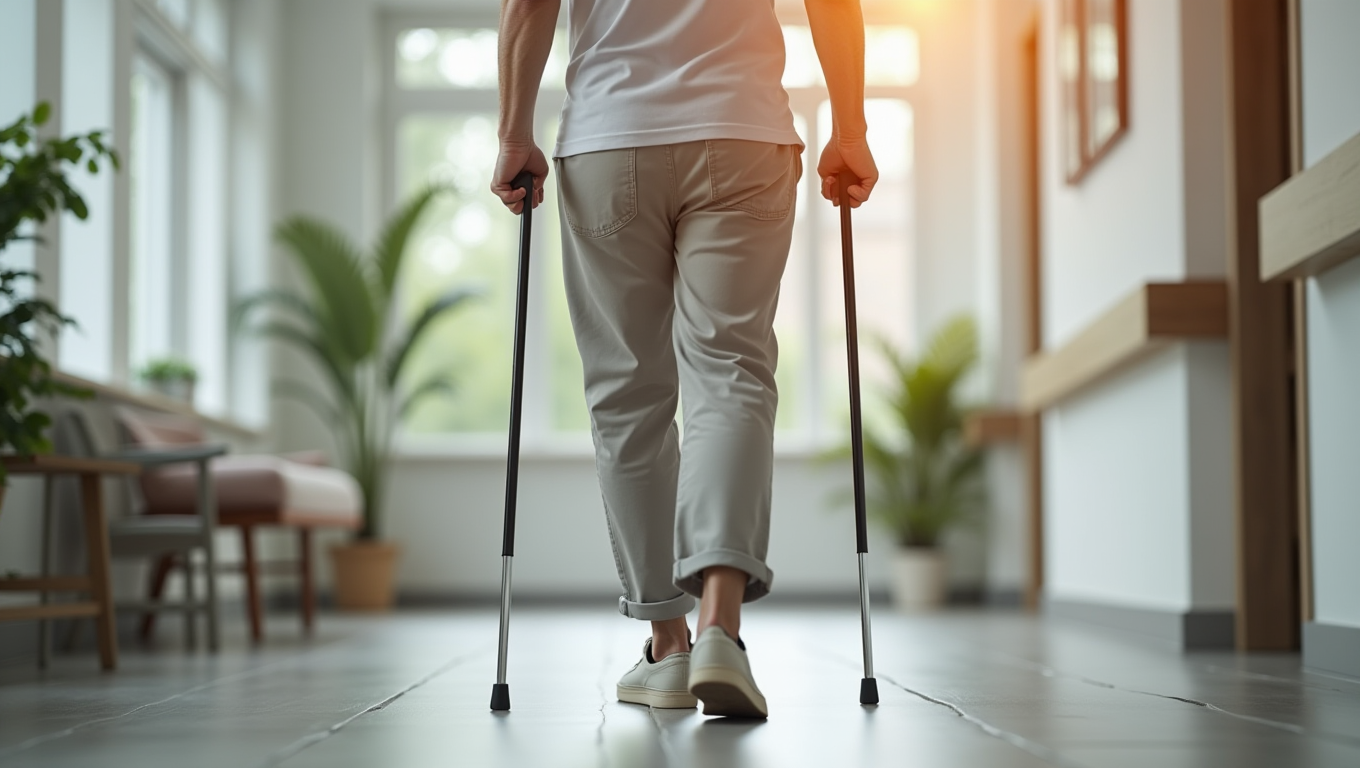Knee replacement surgery is a life-changing procedure for many seniors, offering relief from chronic pain and helping restore mobility. While the surgery itself is a critical step, planning, rehabilitation, and recovery are equally important for achieving the best results. Fortunately, Artificial Intelligence (AI) is here to make every stage of the journey smoother, safer, and more personalized.
In this blog, we’ll explore how AI can help seniors plan, rehabilitate, and recover after knee replacement surgery, ensuring a positive experience and optimal outcomes.
The Importance of Planning and Rehab After Knee Surgery
Knee replacement surgery is just the beginning. A successful recovery depends on:
- Pre-Surgery Planning: Preparing your body and mind for the procedure.
- Post-Surgery Rehabilitation: Engaging in exercises and therapy to regain strength and mobility.
- Monitoring Progress: Ensuring steady improvement while avoiding complications.
AI-powered tools and devices can assist seniors at every stage, making recovery more efficient and empowering.
How AI Helps with Pre-Surgery Planning
1. Personalized Education
AI-powered apps and platforms provide easy-to-understand information about what to expect before and after surgery. These tools guide seniors through preparation, including exercises to strengthen muscles around the knee.
- Example: Apps like KneeGuide offer pre-surgery tips, customized checklists, and step-by-step guidance.
2. Virtual Health Consultations
AI tools enable virtual consultations with healthcare professionals, saving time and reducing stress. You can ask questions, get second opinions, and plan your surgery from the comfort of your home.
- Example: Platforms like Ada Health analyze your health data and connect you with medical professionals.
3. Pre-Surgery Exercises
AI-guided exercise apps can recommend specific routines to strengthen your leg muscles, improving post-surgery recovery outcomes.
- Example: Kaia Health uses AI to create personalized exercise plans that target the knee and surrounding muscles.
How AI Enhances Post-Surgery Rehabilitation
1. Personalized Rehab Plans
AI analyzes your progress and creates a customized rehabilitation plan tailored to your specific recovery needs. These plans adapt as you improve, ensuring the right balance of challenge and safety.
- Example: Hinge Health offers AI-driven exercise routines and real-time feedback for knee rehab.
2. Guided Exercise Programs
AI-powered devices like smart trainers or apps guide you through rehab exercises with detailed instructions and live feedback, ensuring you perform movements correctly to avoid injury.
- Example: Physitrack provides video-guided exercises and tracks your progress in real-time.
3. Pain Management Tools
AI can monitor your pain levels and suggest appropriate interventions, such as rest, ice, or specific stretches.
- Example: Apps like PainScale use AI to track pain trends and recommend coping strategies.
4. Virtual Physical Therapy
AI platforms enable virtual physical therapy sessions with real-time feedback, reducing the need for frequent in-person visits while ensuring proper technique and progression.
- Example: Sword Health pairs AI with licensed physical therapists to deliver remote rehab programs.
How AI Supports Recovery After Surgery
1. Wearable Devices for Monitoring
Smart wearables like fitness trackers monitor your steps, range of motion, and heart rate, providing real-time feedback on your recovery progress.
- Example: Fitbit Sense tracks daily activity levels and alerts you to changes in mobility.
2. Remote Health Monitoring
AI systems collect and analyze data from wearable devices or smart sensors, allowing your healthcare provider to monitor your recovery remotely. Early detection of complications, like swelling or reduced mobility, ensures timely intervention.
- Example: Devices like Biofourmis track post-surgery vitals and provide predictive analytics for early issue detection.
3. Fall Detection and Safety
AI-enabled fall detection devices ensure safety, especially when seniors regain mobility after surgery. These devices alert caregivers or emergency contacts in case of a fall.
- Example: Life Alert Smart Watch monitors movement and detects falls, providing peace of mind.
4. Medication Management
AI-powered apps remind seniors to take prescribed medications on time and track their usage, reducing the risk of missed doses or complications.
- Example: MediSafe sends reminders and provides insights into medication adherence.
5. Mental Health Support
Recovering from surgery can be emotionally challenging. AI-based mindfulness and relaxation apps help seniors manage stress, anxiety, or feelings of isolation during recovery.
- Example: Apps like Calm or Headspace provide guided meditations and breathing exercises tailored to recovery.
6. Diet and Nutrition Tracking
AI-powered apps recommend recovery-friendly diets rich in nutrients that promote healing, such as foods high in protein and anti-inflammatory properties.
- Example: Foodvisor analyzes meals and offers personalized dietary suggestions to support recovery.
12 AI Tools and Devices to Aid Recovery
- Hinge Health: Personalized rehab programs with AI-driven guidance.
- Physitrack: Video-guided exercises and progress tracking.
- Fitbit Sense: Tracks activity levels and monitors recovery.
- Biofourmis: Provides remote monitoring and predictive analytics.
- MediSafe: Medication reminders and tracking.
- Kaia Health: AI-powered pre- and post-surgery exercise plans.
- Sword Health: Virtual physical therapy with AI support.
- PainScale: Tracks pain levels and suggests coping strategies.
- KneeGuide: Offers educational content and pre-surgery planning.
- Foodvisor: Helps plan recovery-friendly meals.
- Calm: Supports mental well-being with relaxation exercises.
- Life Alert Smart Watch: Ensures safety with fall detection features.
Tips for Seniors Using AI in Recovery
- Start Simple: Begin with one or two tools, like a fitness tracker or medication app, to get comfortable with AI technology.
- Follow Professional Guidance: Use AI tools as a supplement, not a replacement, for advice from your doctor or therapist.
- Stay Consistent: Regularly use AI apps and devices to track progress and stick to your recovery plan.
- Involve Family or Caregivers: Share recovery updates and insights from AI tools with loved ones for additional support.
Conclusion
Recovering from knee replacement surgery can be a challenging journey, but with the help of AI, seniors can achieve faster, safer, and more personalized outcomes. From planning before surgery to guided rehabilitation and ongoing recovery support, AI tools empower you to take control of your health while staying connected with healthcare professionals.
Ready to embrace smarter recovery? Explore AI-powered tools and resources on CoolSenior to make your post-surgery journey more comfortable and effective. Let technology guide you to a stronger, more mobile future!


No responses yet